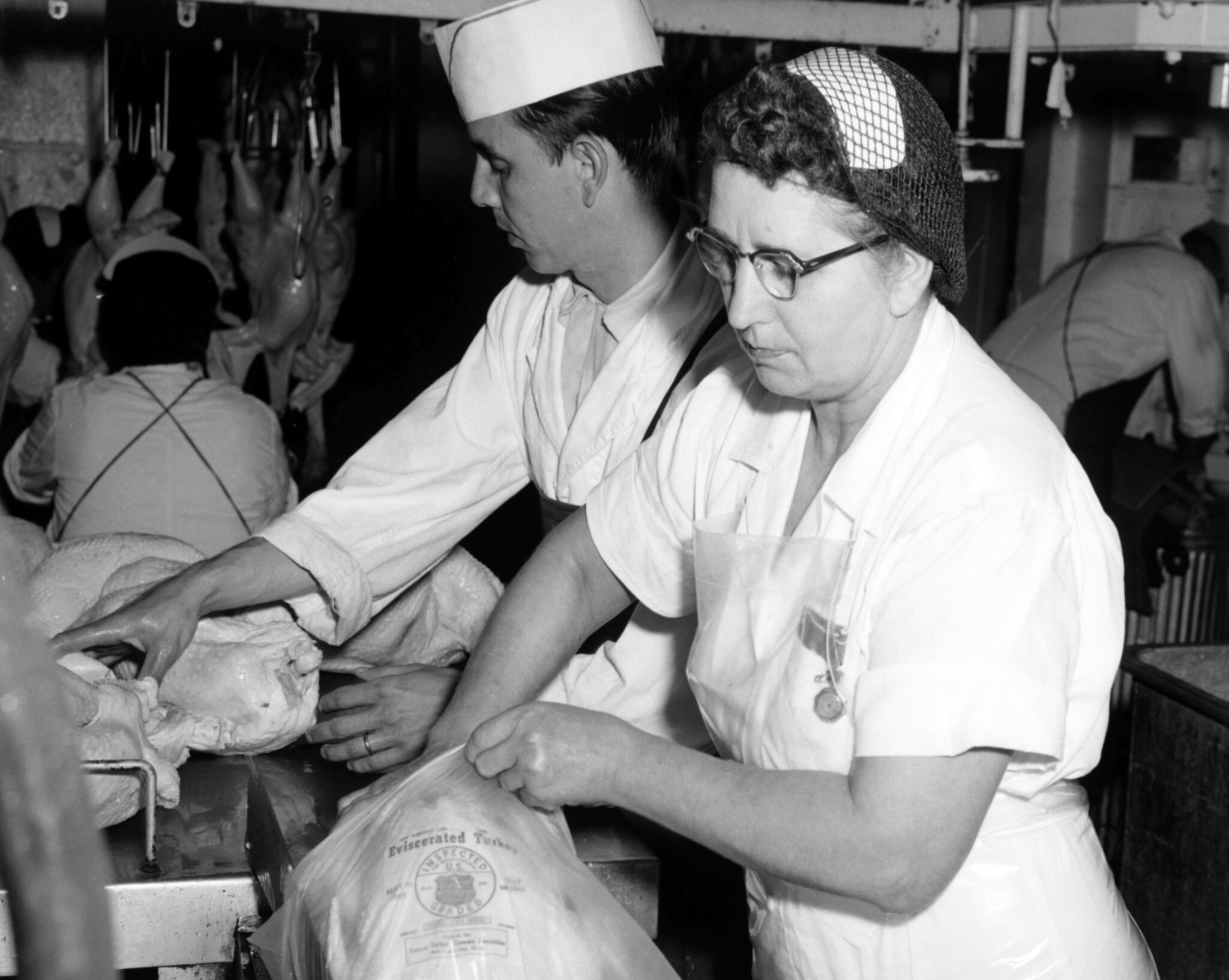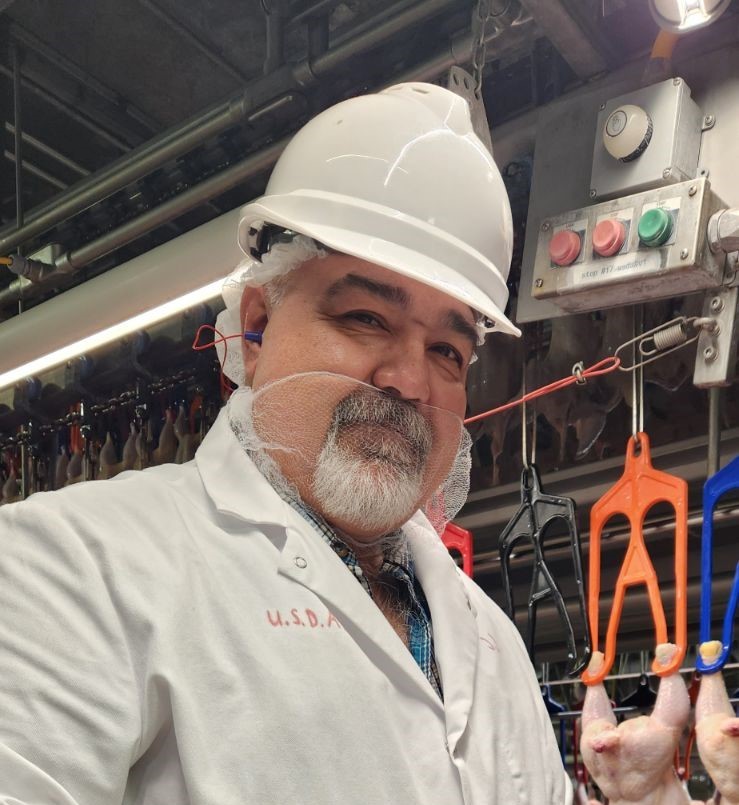
Student Employment Programs
U.S. Department of Agriculture (USDA), Food Safety and Inspection Service (FSIS) offers students and recent graduates several paths to Federal employment through enriching experiences. There is no better time than the present to make the career-related decisions that will create valuable opportunities that support your career path. Take your first step on your new journey and discover the benefits of employment with FSIS.
Apply Now
Visit USAJobs to ApplyHow to Apply
View Tips & ResourcesCareer Profiles
View the ProfilesFSIS is the agency in the USDA responsible for protecting the public's health by ensuring the safety of the Nation's commercial supply of meat, poultry, and processed egg products. FSIS has 8,500 employees, including 7,500 frontline workers who work in 7,100 regulated establishments across the United States and U.S. territories.
We employ over 1,000 workers at nearly every level in most career fields - including information technology, finance, science, human resources, education, public affairs, policy, civil rights, international affairs, compliance, and law. We also offer an outstanding benefits package for our workforce and their families, some of which may apply to students. To learn more about the career opportunities available view our Career Profiles page.
You can also discover where our frontline careers are located near where you want to work by visiting our Meat & Poultry Inspection Directory and interactive map. This resource is a complete listing of establishments that produce meat, poultry, and/or egg products regulated by FSIS.
Our student program team is available to answer any questions that you may have. Feel free to reach out to us directly at FSISHR1@usda.gov or by calling 1-877-FSIS-HR1 (1-877-374-7471).
Pathways for Students and Recent Graduates
How to Apply
Are you ready to begin your exciting journey working with FSIS through the Internship or Recent Graduates Program? When available, these opportunities are announced through USAJOBS. Students are encouraged to visit the FSIS Job Opportunities page and should submit applications following the instructions listed on the FSIS Apply for a Job webpage. You can also check our Events and Meeting page to find hiring events near you.
Tips on Using USAJobs
For helpful tips, resources, and videos to be more successful in the USAJobs application process, view:
- USAJobs' series of helpful YouTube videos or Help Center
- FSIS' Resume Tip Sheet, and
- FSIS' Resume Workbook-Part 1 (including examples) and Resume Workbook-Part 2 (including USAJobs walkthrough).
Did you know that you can save a search on USAJOBS and receive daily, weekly, or monthly updates on positions that you are interested in? Follow the directions listed on How to Save a Search in the USAJOBS Help Center.
Externships and Volunteer Opportunities
Learn MoreAdditional Opportunities
For more information on internships and career opportunities with USDA please visit the Internships and Career Opportunities webpage.
Adel A. Malak Scholarship Program
The FSIS Adel A. Malak Scholarship operates under the guidelines of the USDA Pathways Program. The scholarship provides students enrolled in a degree-seeking Doctor of Veterinary Medicine (DVM) program a $15,000 scholarship funding for tuition, books, tutors, and laboratory fees awarded for each year in the program. As an Adel A. Malak Scholarship recipient, students will experience and take on a variety of Public Health Veterinarian responsibilities to more fully understand the great work FSIS does to protect public health through food safety.
Learn More information about Adel A. Malak Scholarship Program
For questions about the Adel A. Malak Scholarship Program, send an email to: Adel.A.MalakScholarship@usda.gov.
Meet former Adel A. Malak Scholar, Dr. Ella Cowan de Wolf, 2024 graduate Washington State University College of Veterinary Medicine, Supervisory Public Health Veterinarian

Why I wanted to intern with FSIS:
Throughout veterinary school, I knew that I wanted to work with agricultural animals. At the time, I believed my only career opportunities to satisfy this desire were to pursue boards for specialization or seek agricultural animal medicine in a mixed practice. It was not until my second year in school when the potential of working with agricultural animals as well as the USDA became a possibility through the Malak Scholar Program. I had no notion of what I was getting into or what being a Supervisory Public Health Veterinarian (SPHV) was like, or realistically, what to tell my colleagues or family about this new career direction. However, during my years interning for FSIS, I quickly found a career passion to apply my degree in veterinary medicine. My headquarter establishment was a high-speed prime cattle plant but through inter-district and inter-circuit coordination, I was able to travel throughout the western states and experience the duties of an SPHV at many different establishment types ranging from very small to cull-cattle to patrol assignments. The Malak Scholar Program exposed me to an entirely different career path in veterinary medicine and enabled me to venture out of my comfort zone to apply my knowledge and skills. As a current full-time in-plant SPHV, every day is like a puzzle that presents new challenges and new opportunities that keep me both engaged and passionate about veterinary medicine and my role as a veterinarian for the USDA.
Why I recommend working for the FSIS:
As a Supervisory Public Health Veterinarian, I am a supervisor for my Food Inspectors and Consumer Safety Inspectors, a veterinarian anatomic pathologist responsible for dispositions of retained animals, and a resource for upholding FSIS regulations, directives, and notices. There are many aspects of my job that required extensive training and repetition to apply successfully, but the benefits of having a healthy work-life balance are phenomenal. Working as a USDA SPHV provides a stable career option with competitive career growth potential while also implementing boundaries that allow me to pursue my passions and interests in veterinary medicine.
To learn more about what our Public Health Veterinarians do, please watch this short video.




